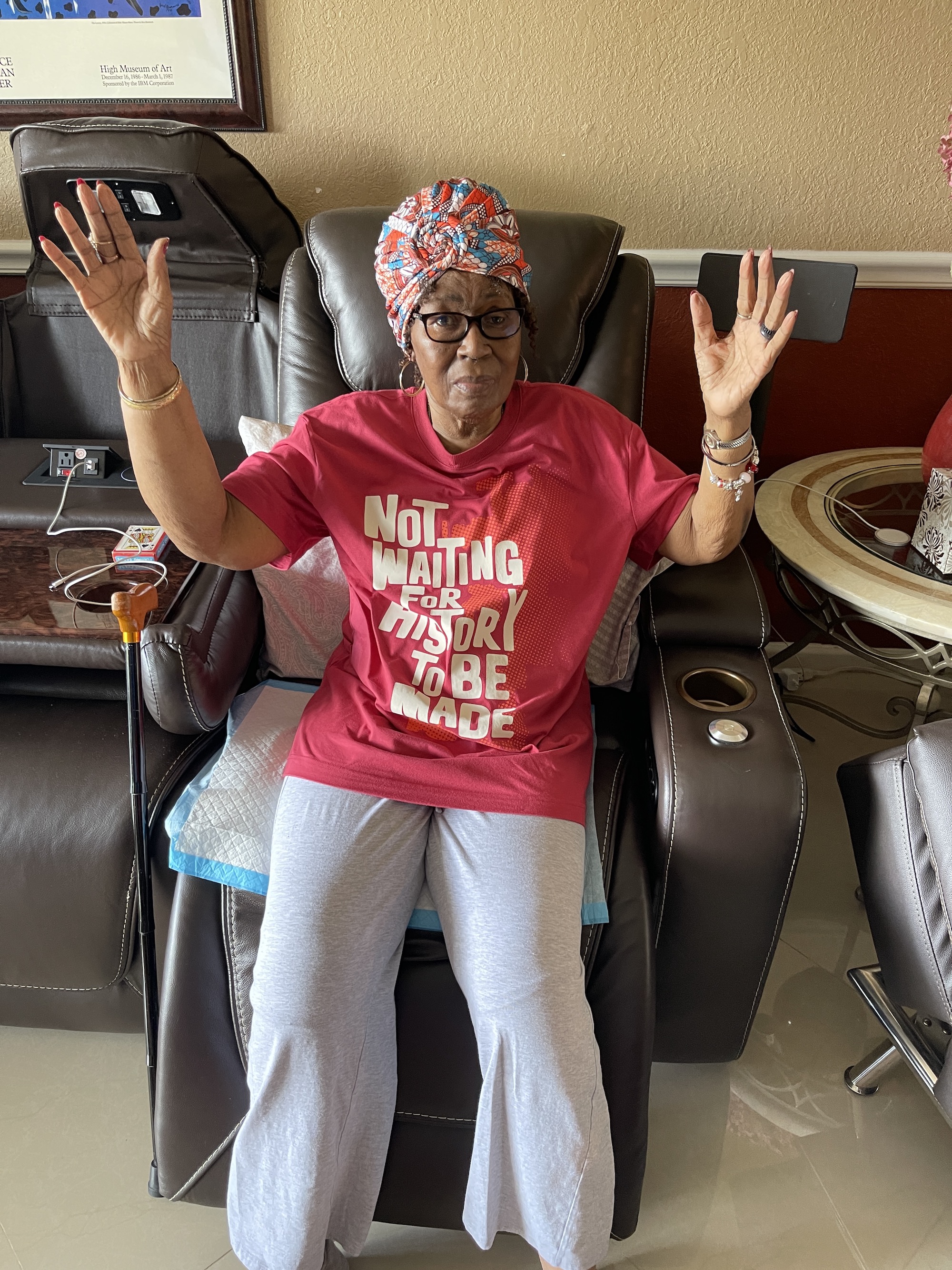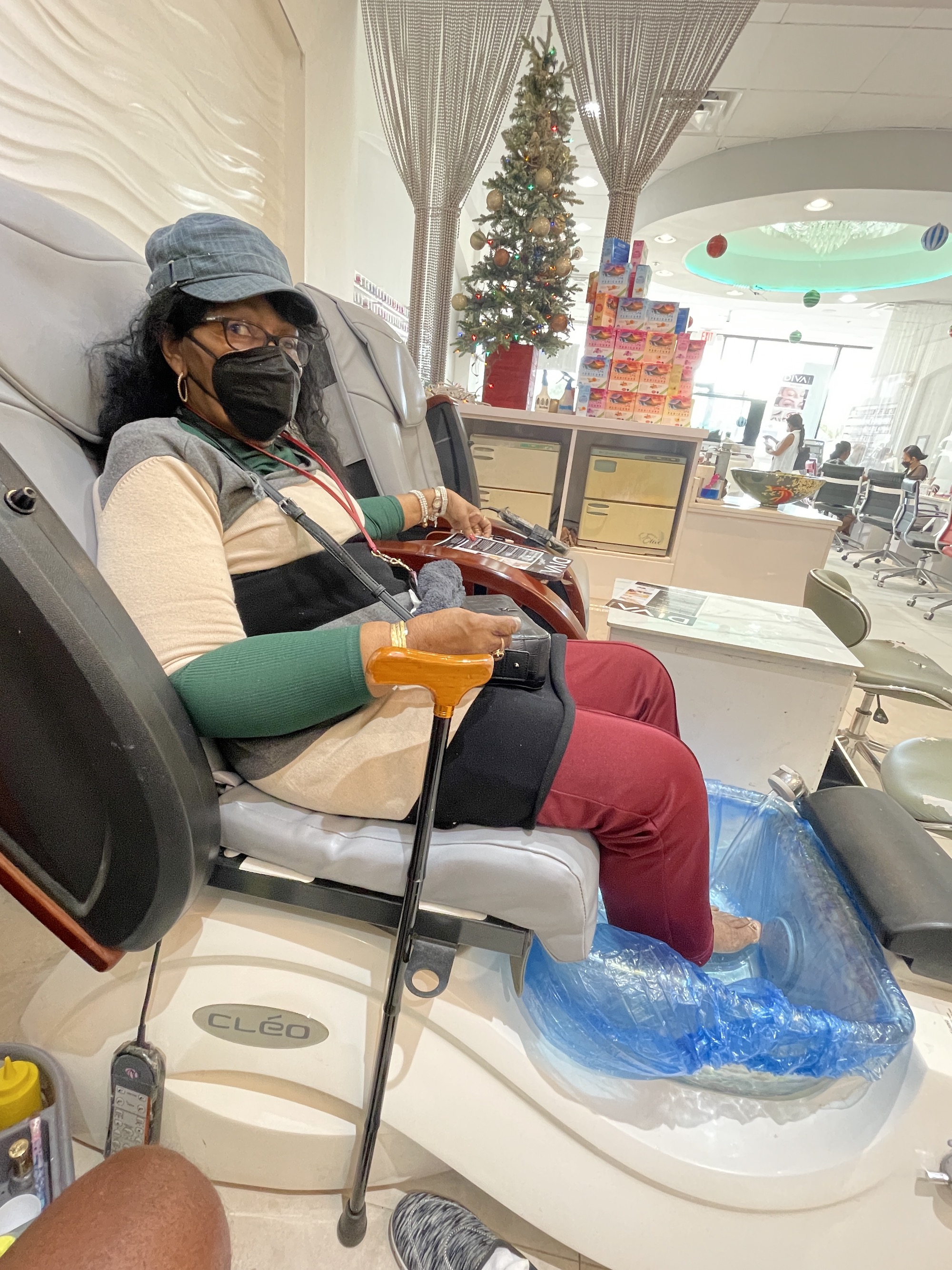Recognizing The Signs
Introduction:
In my previous article of "My Dementia Experience," I share my personal experience with dementia and how it has shaped my life. Dementia is a complex and challenging condition that affects not only the individual diagnosed but also their loved ones. By recounting my own journey, I hope to provide insight into recognizing the signs of dementia, the emotional impact it has on families, and the importance of seeking professional help and diagnosis. From my personal experience, many people assume that they know what dementia is, based off what someone else told them or what they may have seen/or heard on television or a movie. I am here to tell you that the majority of those views are furthest from the reality of dementia.
In my previous article of "My Dementia Experience," I share my personal experience with dementia and how it has shaped my life. Dementia is a complex and challenging condition that affects not only the individual diagnosed but also their loved ones. By recounting my own journey, I hope to provide insight into recognizing the signs of dementia, the emotional impact it has on families, and the importance of seeking professional help and diagnosis. From my personal experience, many people assume that they know what dementia is, based off what someone else told them or what they may have seen/or heard on television or a movie. I am here to tell you that the majority of those views are furthest from the reality of dementia.
Recognizing the signs:
It all began with subtle changes that seemed inconsequential at first. My mother was misplacing keys, eyeglasses, the remote control, forgetting appointments, and struggling to find words during conversations were just a few of the initial symptoms that caught my attention. Just like a lot of people, I just chalked it up to her getting older and forgetful. But these signs should have given me pause and made me question if something more serious was happening.
Observing these changes myself was not easy, but it was even harder for me to try and explain it to other family and friends. They too noticed these lapses in memory and cognition, which caused them concern, but it was easy to also chalk it up to just getting older, as they did not have the privilege of seeing it every day. I found myself on a rollercoaster of emotions as I grappled with what these signs might mean for my mother’s future.
Observing these changes myself was not easy, but it was even harder for me to try and explain it to other family and friends. They too noticed these lapses in memory and cognition, which caused them concern, but it was easy to also chalk it up to just getting older, as they did not have the privilege of seeing it every day. I found myself on a rollercoaster of emotions as I grappled with what these signs might mean for my mother’s future.

The Emotional Impact:
The emotional impact of recognizing these signs cannot be overstated. For both individuals experiencing dementia symptoms and their loved ones, there is an overwhelming sense of fear, confusion, and grief. The realization that one's cognitive abilities are deteriorating can lead to anxiety about losing independence or becoming a burden on others. This was especially difficult for my mother. For me, I did what I felt that I needed to do. I sold my condo and moved in with my mother in her condo, so that I would be able to care for her appropriately. She struggled with this. I guess this was a loss of independence from her point of view. She enjoyed the fact that I was physically in the same household, but she struggled with the decisions and changes that I was making to better accommodate the living arrangement.
As I observed how my family struggled to come to terms with this new reality, I became acutely aware of how vital emotional support and consensus is during this journey. It is essential for everyone to get one the same page, in wanting the best care and support for our mother. Unfortunately, that was not the case in my situation. At the end of the day, I put my mother’s needs first and just focused on providing her with the best care possible.
As I observed how my family struggled to come to terms with this new reality, I became acutely aware of how vital emotional support and consensus is during this journey. It is essential for everyone to get one the same page, in wanting the best care and support for our mother. Unfortunately, that was not the case in my situation. At the end of the day, I put my mother’s needs first and just focused on providing her with the best care possible.
Seeking Professional Help:
Recognizing the signs is just the first step; seeking professional help is crucial for an accurate diagnosis. In "My Dementia Experience," I emphasize that seeking early intervention from medical professionals specializing in dementia is of utmost importance. Only through proper diagnosis can individuals and their families gain access to the necessary support and resources to navigate this challenging journey. For me, that meant a lot of doctor’s visits. I had mom going to see a Neurologist, a Clinical Neuropsychologist, and a Clinical Psychologist. Some weeks it felt like we were seeing some form of a doctor 2-3 times that week. Mom was not necessarily fond of all those doctor visits, but it was necessary.
During my experience, I discovered that there are various medical tests and evaluations used to diagnose dementia accurately. These tests include cognitive assessments, brain imaging, blood tests, and sometimes even genetic testing. While the diagnostic process can be emotionally challenging, it is a necessary step towards accessing appropriate care and support.
During my experience, I discovered that there are various medical tests and evaluations used to diagnose dementia accurately. These tests include cognitive assessments, brain imaging, blood tests, and sometimes even genetic testing. While the diagnostic process can be emotionally challenging, it is a necessary step towards accessing appropriate care and support.

Importance of Diagnosis:
Obtaining an official diagnosis was not just a formality; it provided clarity and allowed me to better understand the specific type of dementia affecting my mother. I learned that there are Alzheimer's disease, vascular dementia, Lewy body dementia, frontotemporal dementia, and more. Each type progresses differently in terms of symptoms and cognitive decline.
Understanding the specific type diagnosed is vital for both individuals living with dementia and their families. It helps guide treatment plans, informs future decision-making processes regarding care options or clinical trials, and allows access to specialized support groups tailored to each specific type.
Understanding the specific type diagnosed is vital for both individuals living with dementia and their families. It helps guide treatment plans, informs future decision-making processes regarding care options or clinical trials, and allows access to specialized support groups tailored to each specific type.
Conclusion
Recognizing the signs of dementia is an emotional journey that impacts not only individuals experiencing symptoms but also their loved ones. By sharing my personal experience in "My Dementia Experience," I hope readers will gain insight into this complex condition's initial stages while emphasizing the importance of seeking professional help for an accurate diagnosis and working together to provide the best care and support for their loved ones. Only by acknowledging these signs can we begin our path towards understanding the unique challenges we face in our individual journeys with dementia.